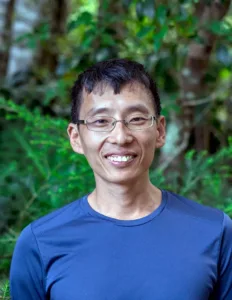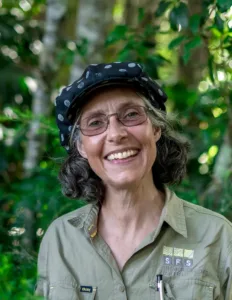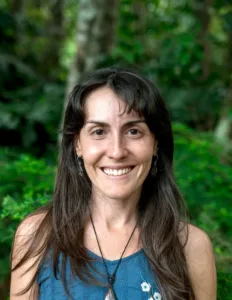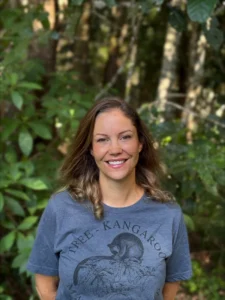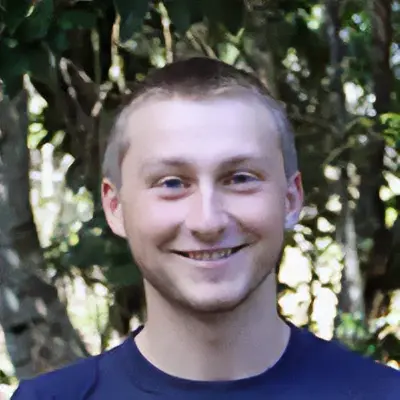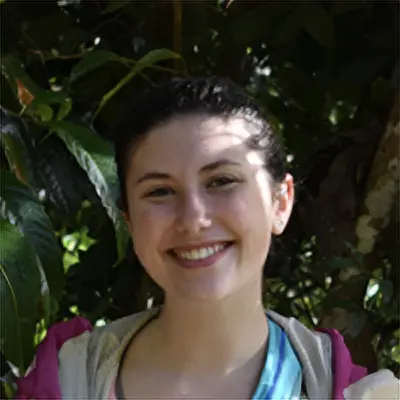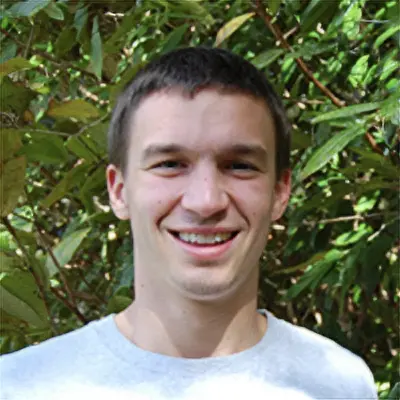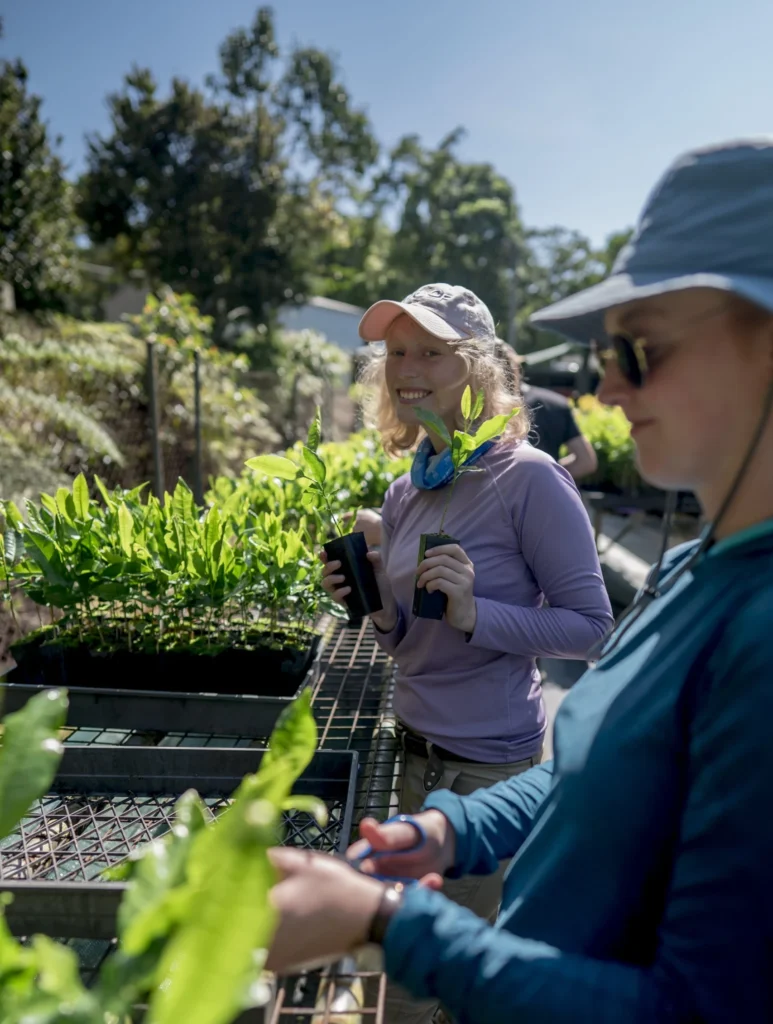Australia
Study Abroad in Australia
Have you ever wanted to live in a cabin surrounded by lush tropical rainforests, fall asleep to the chirping of crickets, and awaken to the morning songs of birds?
Are you ready to walk beneath a canopy of giant tropical conifers and towering fig trees, sample exotic tropical fruits right off the tree, wade in upland waterfalls, and snorkel with sea turtles on the world-famous Great Barrier Reef?
Whether you’re an experienced traveler or looking for your first trip to another country, studying abroad is an important component of your college career. Living abroad gives you the opportunity to explore new places and learn about different cultures, gaining important global perspectives, discovering new things about yourself, and building lifelong friendships.
Our programs in Australia take place in the country’s ancient rainforests, with excursions to the edge of the Outback and the Great Barrier Reef. Courses and fieldwork focus on key environmental issues faced here such as climate change, biodiversity conservation, and land use change. Research at our Australia Center focuses on the environmental threats that have caused rainforest fragmentation, species loss, and reef die-off, and we work with the Mandingalbay Yidinji Indigenous people and Tablelands communities on restoration and management projects to help Australia thrive in a time of ecological uncertainty.
Programs
Rainforest to Reef
See Program Costs
Program Costs
- Tuition
- Room & Board
- Total
Rainforests of Australia
See Program Costs
Program Costs
- Tuition
- Room & Board
- Total
Marsupials of Australia
See Program Costs
Program Costs
- Tuition
- Room & Board
- Total
Where You'll be Living
At the end of a narrow, winding path, surrounded by lush rainforest, lies this remote field station. Our 153-acre property is surrounded by protected World Heritage forests, and you can observe incredible wildlife from the front steps of your cabin. The nearby towns of Yungaburra, Atherton, and Cairns are just a short drive away.
- Group living in eight-person cabins
- Main building with classroom, lab, and study spaces
- Student lounge with scenic porch views and WiFi
- Covered outdoor dining area, on-site cook, and garden
- On-campus network of trails for rainforest hikes
- Outdoor spaces for volleyball, yoga, and hammocks
Know before you go
Click on each dropdown to explore details about life at this Center, and determine if it’s the right fit for you.
Program experience
Living Conditions & Daily Life
Students follow a structured schedule of classes and field activities most weekdays and some weekends (7 AM–7 PM). Accommodations are in shared cabins with communal dining facilities; breakfast and lunches are typically self-prepared, and dinner is provided by an on-site cook. The remote rainforest setting means there are no nearby amenities within walking distance.
Semester programs include 5–7 free weekends (3–4 days each) and a week-long mid-semester break. During free weekends and break, the Center is closed and students must plan travel independently. Summer sessions offer fewer free weekends.
Physical Readiness
Fieldwork includes outdoor activities and research in rugged rainforest terrain, featuring short hikes (1–2 hours), standing or walking for extended periods, and occasional manual conservation work. Expect hot, humid conditions with heavy rainfall.
The Center sits on hilly terrain with narrow paths, limiting accessibility for those with mobility impairments. Swimming and snorkeling opportunities during the semester are infrequent.
Summer II students spend two weeks in Bali in a busy, urban environment, where facilities are much more accessible compared to the Australia Center.
Travel & Transitions
The program is primarily based at the SFS field station, though students regularly participate in day trips to research sites and occasional overnight excursions. Flexibility is essential, as schedules may change.
Summer II students spend two weeks at the Australia Center, followed by two weeks traveling across Bali, requiring adaptability to varied environments and travel conditions.
Location & Culture
Program Location & Natural Environment
The SFS Center is in a remote rainforest teeming with biodiversity. Expect daily sensory engagement, from the sights and sounds of dense green landscapes to wildlife encounters—snakes, spiders, insects, and more. Wi-Fi access is intermittent, so delays in communication are likely.
Cultural & Linguistic Differences
Australian culture is generally familiar to students from Western countries, with English as the primary language. Students may engage with Indigenous Australian communities, gaining deeper cultural insight. All classes are conducted in English.
During the Summer II excursion in Bali, English is widely spoken in tourist areas, though cultural norms differ and adaptability is key.
health
Allergies & Dietary Preferences
Allergy and dietary restriction management in Australia is generally straightforward due to high public awareness and specialty product availability. Students prepare their own breakfasts using kitchen appliances.
Summer II students should note that peanuts, shellfish, and their oils are commonly used in Indonesian cuisine. These ingredients may be unavoidable.
Cross-contamination accommodations for advanced allergies abroad may not be feasible. Students with severe or life-threatening allergies and/or strict dietary requirements must consult with medical professionals and [email protected] before applying.
Required Vaccinations & Health Care
SFS does not require specific vaccinations for this program. For additional recommendations, consultation with a travel medicine professional is strongly advised before departure. For Summer II, see local recommendations for both Australia and Indonesia before traveling.
Access to medical care in remote areas may be delayed up to 24 hours. Basic medical facilities are about 30 minutes from the SFS Center; advanced care is approximately 1.5 hours away.
Routine in-person medical and counseling services are not feasible during the program. Students must bring a full supply of any prescription medications, including psychotropic medications, for the entire duration of the program, as local refills may not be available without prior arrangements.
PRogram Costs
Study abroad is an investment in yourself – you’ll return home with new experiences, skills, knowledge, and friendships that will stay with you for the rest of your life. SFS program costs cover a variety of expenses, including:
- Pre-program advising and on-site orientation
- Tuition and research fees
- Housing at the field station and on excursions
- Daily meals and snacks
- Airport transfers (for arrival/departure)
- Field excursions and cultural activities
- Student success and wellness team on site
- 24/7 mental health and well-being support
- Emergency evacuation and repatriation insurance
- Official transcript processing
Financial Aid
We know cost can be one of the biggest barriers to studying abroad. At SFS, we’re committed to making our programs accessible to students which is why we award a generous amount in need-based financial aid each year. Our Admissions Team has worked with thousands of students and are here to answer your questions about the SFS aid process, aid available through your home school, and funding from external sources.
SFS Financial Aid: Need-based aid packages typically consist of a combination of scholarships, grants, and zero- and low-interest loans. SFS matches Federal Pell Grant funding for students applying to an SFS semester program.
Home School Aid: Be sure to ask your home school study abroad office or financial aid office what financial aid resources might be available to support your study abroad experience.
External Funding Opportunities: Organizations such as the Fund for Education Abroad or the Gilman International Scholarship Program award scholarships to students going abroad. These can be a great opportunity to reduce the cost of your program even more.
Research
Research at the SFS Center for Rainforest Studies focuses on rainforest conservation, ecosystem restoration, the complex connection between the rainforest and the Great Barrier Reef, and topics of environmental sustainability. Students and faculty engage with local communities, Indigenous groups, NGOs, and local landholders. As the oldest rainforest on the planet, management strategies developed here may serve as a model for conserving and restoring other rainforests around the world.
Our research focuses primarily on the following themes:
- Rainforest fragmentation and recovery
- Habitat restoration
- Climate change
- Marsupial behavior
- Aboriginal ecotourism
- Development and settlement in the rainforest
- Ecosystem dynamics
Community
SFS is an active member of the Queensland community, where we have been based since the late 1980s.
We have built long-term, collaborative relationships in the communities around the Center, and developed our research plans based on the environmental issues they and the surrounding ecosystems face. Throughout the program, students assist in local restoration projects, host community dinners, attend festivals, and socialize with local conservation groups and at sporting competitions.
At the end of each semester program, we host a Community Research Night where select students will present their research findings to the community. SFS research data is shared with the community, local NGOs, and the Australian government.
Meet the Australia Team
